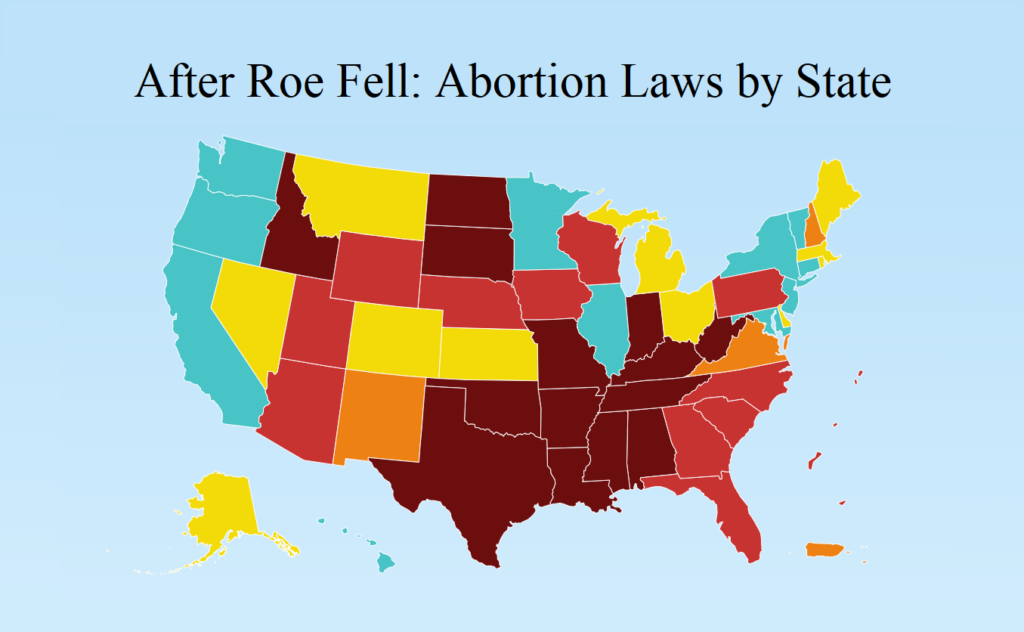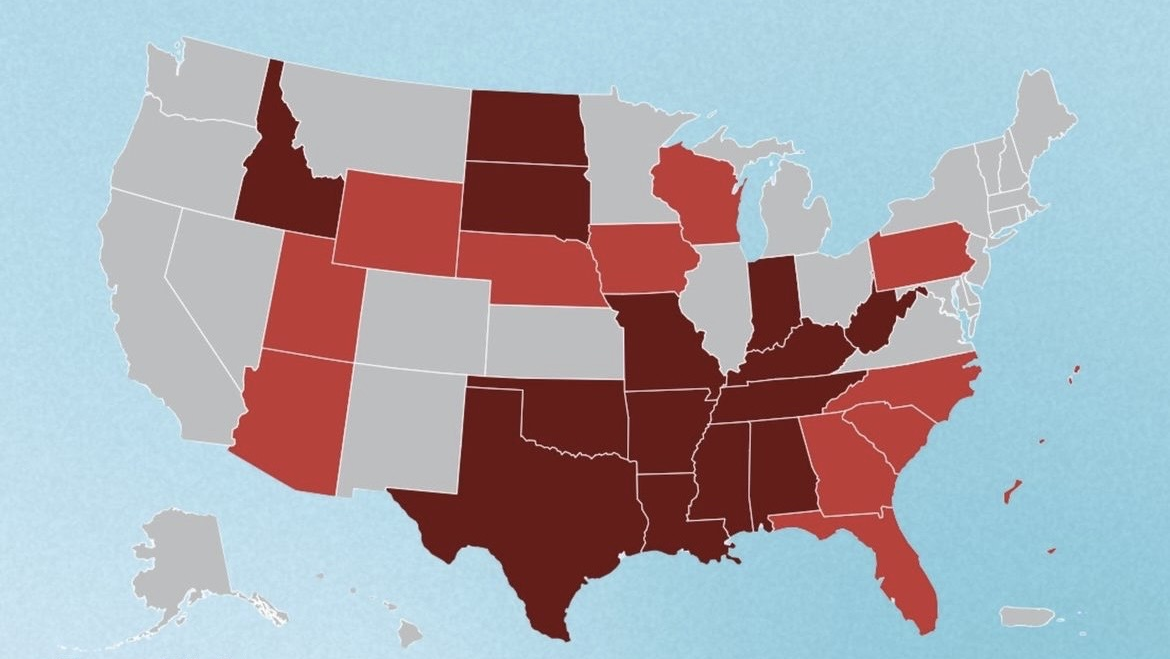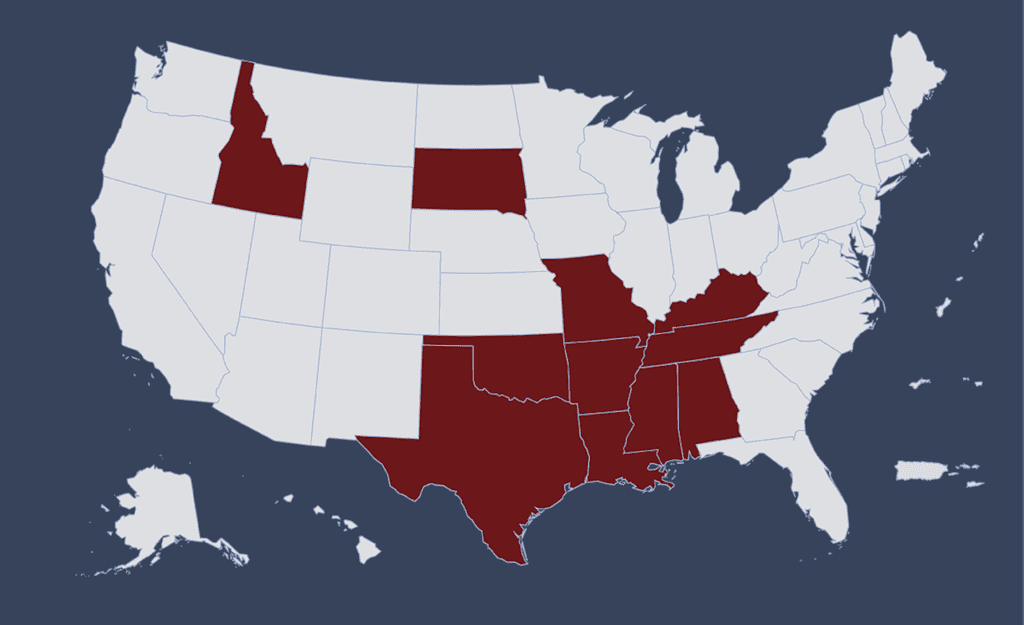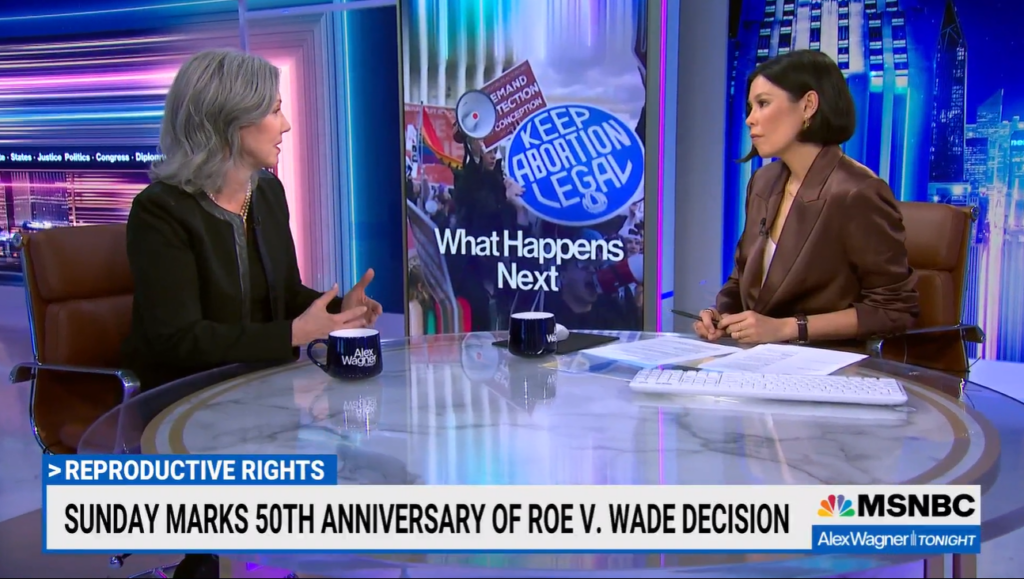As College Decision Day Nears, Students Should Consider States’ Abortion Access
With half the U.S. states banning or severely restricting abortion, millions of young people will be headed to colleges in states without access.

While students consider a number of factors when deciding on what college to attend—such as affordability, academics and campus life— one concern is of growing importance: access to reproductive health care.
In the two years since the U.S. Supreme Court eliminated the constitutional right to abortion, abortion is now banned or severely restricted in half the U.S. states. In the post-Roe landscape, that means millions of young people will be heading to colleges in states with far fewer options to manage unintended pregnancies.
May 1 is “National College Decision Day”—when college applicants traditionally must commit to their school of choice. With recent studies showing students are concerned about access to reproductive health care, students should be aware of state abortion laws before they make their final college decision.
Approximately 18 million students were enrolled in U.S. colleges in fall 2023, and more than half (55%) were women. The highest rate of unintended pregnancy in the U.S. is among women 20 to 24 years of age—prime college ages.
80% of current/prospective students prefer states with greater access to abortion. — Lumina Foundation-Gallup 2024 State of Higher Education Study
“The college decision process has always been complex and emotional. . . And now, for the first time in two generations, young women are making these decisions in a world where access to reproductive health care is not guaranteed,” reports Women’s Health.
According to the Lumina Foundation-Gallup 2024 State of Higher Education Study of currently enrolled and prospective college students, most said that states’ reproductive health care policies are important in their enrollment decisions:
- 71% say state reproductive healthcare policies impact college choice.
- 80% of all current/prospective students prefer states with greater access.
- 86% of Democrats and 63% of Republicans prefer states with greater access.
In an NBC News article, “Young students deciding on colleges weigh state politics in their decisions,” one high school senior said, “I’m not comfortable with being in a state that doesn’t value who I am or value my rights as a person.” Another said that she immediately eliminated schools in states with restrictive abortion laws, including the University of Texas at Austin, a school she had long dreamed about attending.
A poll by the Institute for Women’s Policy Research (IWPR) about state abortion laws found that both students and parents from nine Northeast states overwhelmingly favored schools in states without abortion restrictions. The poll focused on the Northeast region since it has the highest share (45%) of students who leave their states for college—plus students would be leaving home states where abortion was legal.
Among that poll’s findings were:
- 76% of students prefer to go to college in a state where abortion is legal and accessible.
- 84% percent of students and 69% of parents do not want the student to be without abortion access while at college.
- 100% of parents contributing financially to college costs prefer their child to go to college in a state where abortion is legal and accessible.
“Abortion bans are affecting where students feel comfortable living and learning,” said Daisy Chin-Lor, President and CEO of IWPR. “They do not want to go to states that restrict their reproductive health choices, and their parents do not want to support states that limit women’s freedom.”
Restrictions in Training Causing Medical Students to Avoid States with Abortion Bans
Medical students must also grapple with where to study, since states banning abortion also restrict training in reproductive health care.
In a study published in the Journal of Medical Ethics, more than half (58%) the medical students surveyed said they were unlikely to apply for residency programs in states with abortion restrictions.
In those states, medical students—even those training to become OB/GYNs—are unable to receive training in abortion care. OB/GYN residency programs in such states must send residents out of state to obtain training, creating logistical challenges and causing time lost on other clinical duties.
“I would love to stay in Texas and train. This is a fantastic institution, and I want to serve this community,” added Chelsea Romero, a medical student in Houston. “But if I can’t get the training I need, I will have to leave.”
Moreover, state abortion bans have a stifling effect on the learning environment, with many students fearful that openly discussing abortion could have professional consequences.
“Bringing abortion up feels like a violation because it’s so taboo now,” Amrita Bhagia, a medical student in South Dakota, told The Washington Post. “I don’t know if I can even ask questions, and that’s impeding my learning.”
Texas, where abortion is illegal, has the second highest number of college students enrolled among U.S. states, with nearly 1.6 million students.
Know Your State’s Abortion Laws
In the U.S., abortion is now illegal in 14 states—and Arizona will soon become the 15th state due to a recent state supreme court decision upholding an 1864 ban. In addition, another 10 U.S. states are considered hostile to abortion, with laws and policies severely restricting access—such as, for example, in Florida, where a six-week ban will soon take effect.
Students will soon be making one of the most important decisions of their lives in deciding what college to attend. Before that decision is final, though, students—and their parents—should become familiar with the abortion laws in the states they’re considering.

Resource for States’ Abortion Laws
Updated in real time, the Center’s “After Roe Fell: Abortion Laws by State” digital map examines each state’s abortion laws and court rulings and classifies states into five helpful categories: Expanded Access, Protected, Not Protected, Hostile, and Illegal.
As you consider your final choice for college, use this valuable resource to find out where each state stands—and what your access to abortion care could be over the next few years.
Read more.
- “Lumina Foundation-Gallup 2024 State of Higher Education Study,” Gallup, 03.14.24
- “College Enrollment Statistics in the U.S.,” Best Colleges, 02.07.24
- “Young students deciding on colleges weigh state politics in their decisions,” NBC News, 01.22.24
- “State abortion bans are driving away future doctors,” Fast Company, 12.05.23
- “Abortion bans complicate medical training, risk worsening OB/GYN shortages,” Washington Post, 10.13.23
- “Abortion Bans Are Causing Students To Radically Rethink Their College Plans,” Women’s Health, 06.22.23
- “For the Class of 2023 in the Northeast, State Abortion Laws are a Key Factor in College Decisions, According to a New Institute for Women’s Policy Research (IWPR) Poll,” Institute for Women’s Policy Research, 05.08.23
- “Vital and Health Statistics, Series 2, Number 201,” Centers for Disease Control and Prevention/National Center for Health Statistics, 04.23




